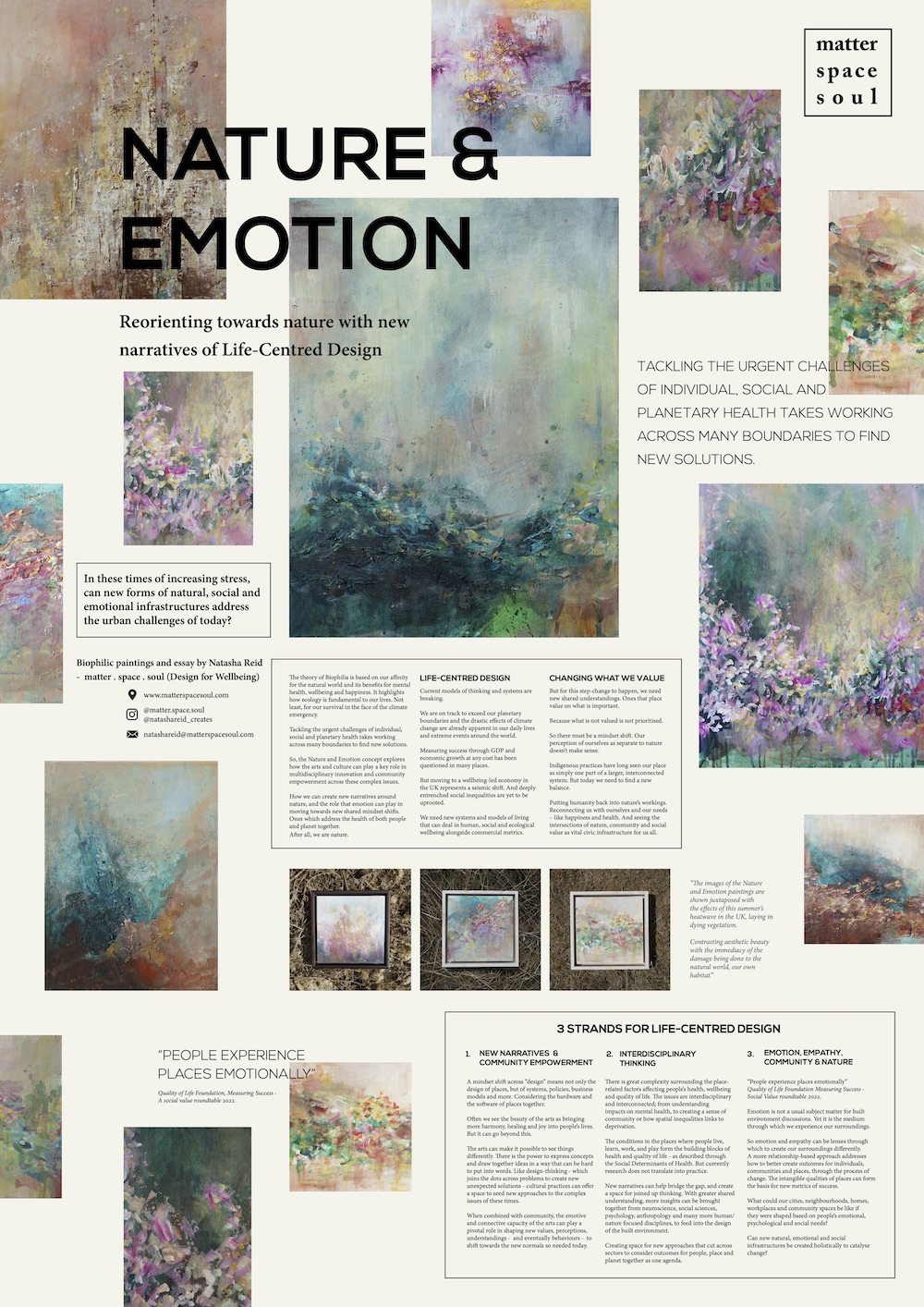Cities / Access to nature
Healthy City Design 2022
Nature and Emotion: Multidisciplinary narratives for life-centred design and systemic change
By Natasha Reid | 21 Dec 2022 | 0
In these times of increasing stress, the ‘Nature and Emotion’ series of paintings highlights the critical importance of ecology in our daily lives and urban settings. The series is rooted in the concept of biophilia, our affinity for the natural world and its benefits for mental health, wellbeing and happiness.
Abstract
The paintings are shown against the dying grass of this summer’s heatwave – setting the scene for exploring the idea of life-centred approaches and systemic change.
Philosophy
The effects of the climate emergency are patently apparent in our daily lives. The measurement of success through GDP and economic growth at any cost doesn’t serve our health, social and cultural needs. Deeply entrenched inequalities are yet to be uprooted. Our current systems are broken.
We need new systems that can deal in human, social and ecological wellbeing, alongside commercial capital. But to do this, we need new narratives. To shift what we value towards what really matters. Because what is valued is prioritised.
Interdisciplinary systems thinking
Health, inequality and deprivation, or flourishing and growth, are tied together, as described through well-established concepts like ‘social determinants of health’. However, there is great complexity in the place-related factors affecting people’s health, wellbeing and quality of life. These challenges need ‘systems-thinking’ approaches that cut across sectors to consider outcomes for people, place and planet together as one agenda.
Can we move towards regenerative thinking and design, based on empathy and with an emotional understanding of place?
Relationship to theories and perspectives in the field
The approach has developed through multidisciplinary practice-based R&D activities over the last decade. Informed by research from the Marmot reviews and social determinants of health, the approach is also influenced by the work of leading experts in healthy planning, such as Professor Helen Pineo and Michael Chang. Natasha Reid is currently developing new progressive spatial policy to embed health into city planning at local authority level, through a new SPD and quality-of-life toolkit championing healthier places.
The objective is to open up ideas around using unexpected mediums or tools for built environment innovation and design thinking, to catalyse new solutions and connections. The idea is to also help communicate the critical issues of our times to a wide audience, striving to make more approachable what is often complex to understand.
Organisations involved

